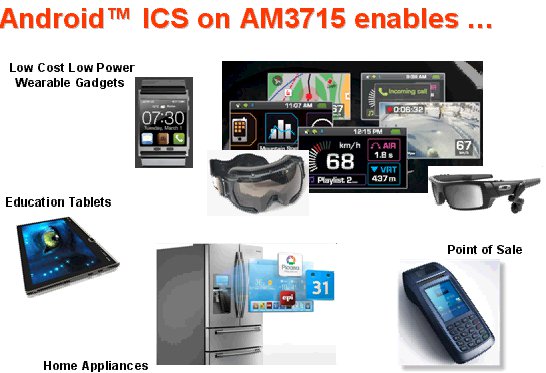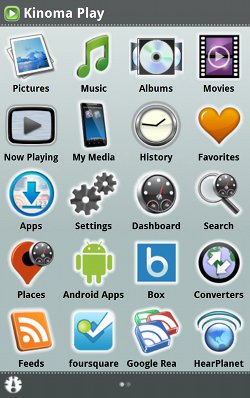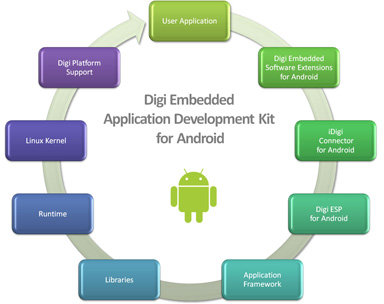The Tizen Technical Steering Group has announced, today, the release of Tizen 1.0 “Larkspur”. Tizen 1.0 release provides several new SDK features and improvements including: Simulator: A new browser-based tool that supports the Tizen APIs and allows you to run and debug your web applications, and simulate running applications with various device profiles. IDE: Enhancements include more flexibility around templates and debugging tools. Emulator: Significantly improved emulator performance through Intel’s Hardware Acceleration Manager for Windows and OpenGL acceleration for Linux. Updates to the platform source code include: Web: Support for additional features of W3C/HTML5 specification Location: Support for POI (Point of Interest) and route search Connectivity: Wi-Fi Direct key features added You can see the full list of changes by reading the release notes for the SDK and the source code. Tizen has also added a bug tracker and a wiki for the community and a few back-end changes have been […]
Texas Instruments Releases Android 4.0.3 DevKit for Beagleboard-XM and Beaglebone
After collaborating with arowboat, android-porting and Linaro communities, Texas Instruments has released Android 4.0.3 development kits for Sitara microprocessors which support Beagleboard-XM (Sitara DM3730) and Beaglebone (Sitara AM335x) low cost development boards, as well as other Sitara-based evaluation modules and development boards. Android 4.0.3 Devkit for Beaglebone If you have a Beaglebone (and an LCD or DVI-D cape), you can use TI Android ICS 4.0.3 DevKit v3.0.1, a release providing an Android ICS 4.0.3 distribution for TI’s Sitara AM335x ARM Cortex A8 Processors. This DevKit provides Android sources with pre-integrated SGX (3D graphics accelerator) drivers, TI hardware abstraction for Audio, WLAN & Bluetooth for TI WL1271 chipset, USB mass storage, etc, as well as development and debugging tools such as a toolchain, TI CCSv5, ADT plugins and more, which are provided to build custom Android solutions for the embedded market more easily. The pre-built images includes Android default apps, multimedia […]
Qt 5 for Raspberry Pi (QtonPi) 0.1 Release
Nokia Qt Labs has announced the very first release of Qt5 for Raspberry: QtonPi 0.1. QtonPi 0.1 includes a pre-alpha release of Qt 5, but Qt 5 alpha will be part of the next release. So bear in mind that it’s likely to be buggy and some features are missing. This release is includes: Base Layer Fedora RPM Packages plus some additional Raspberry Pi specific packages Linaro GCC 4.5.4 toolchain QtonPi image creator and sysroot tools Middleware Documentation on how to get toolchain + sysroot + Qt Creator working to Develop Apps Qt 5 running on full-screen EGFS mode The release can be downloaded via: BitTorrent – qtonpi-0.01.tar.bz2.torrent HTTP Download – qtonpi-0.01.tar.bz2 Alternatively if you are already running the Debian 6 image in the emulator or Raspberry Pi board, you can install the latest snapshot (e.g. nightly build) by adding deb http://archive.qmh-project.org/rpi/debian/ unstable main to /etc/apt/sources.list and run the following […]
Nokia Qt Labs Releases Qt 5.0 Alpha
Nokia Qt Labs announced the alpha release of Qt 5 C++ application development framework, which focuses on the delivery of Qt Essential modules for Qt 5. This new version of Qt goal is to bring the focus to a model, although native Qt using C++ would still be used to implement modular backend functionality for Qt Quick. The developers explains that this module is working nicely on Qt for embedded system where UIs are full screen, but more work is needed on the desktop, and it will only be fully implemented in Qt 5.1 or 5.2. Qt developers make 4 big architectural changes to Qt internal architecture: Base all Qt ports on Qt Platform Abstraction layer (QPA) to make it easier to port Qt to other windowing systems and devices. Re-architect Qt graphics stack using a a Scenegraph on top of OpenGL to increase performance versus Qt 4, using Qt […]
Android SDK Tools and ADT Revision 17 with VM Acceleration for x86 Emulator
Google has released revision 17 of the SDK Tools and the Eclipse plugin. This release brings new features and bug fixes in for Lint static checker, the build system, and the emulator among other things. Here’s what’s new for Lint in r17: Lint API Check – Added check for Android API calls that require a version of Android higher than the minimum supported version. You can use the @TargetApi annotation to specify local overrides for conditionally loaded code. New Lint Rules – Added over 40 new Lint rules for a total of over 80, including checks for performance, XML layouts, manifest and file handling. Ignoring Lint Warnings – Added ability to suppress Lint warnings in Java code with the new @SuppressLint annotation, and in XML files with the new tools: namespace prefix and ignore attribute. New Eclipse Lint UI – Improved HTML and XML reporting and Eclipse integration. Improvements to […]
98 Raspberry Pi Boards Left for Qt Developers
In November 2011, the Raspberry Pi foundation announced that Nokia purchased codes for 400 boards from the 1st 10,000 batch, in order to give them away to selected developers that are interested in helping develop and test Qt 5 on the Raspberry Pi. This developer program is called QtonPi. The surprising part if that they struggle to distribute all those boards. Although to date 425 people have been selected, only 302 are currently eligible to receive a board because over 100 developers did not provide their details to receive the free Raspberry Pi board namely: Their full name The link to their wiki user profile. The area of the “QtonPi Accepted Page” where they are listed. The country where the board will be shipped If by chance, you are reading this blog, have been selected but you can’t see “OK” or “CODE SENT” next to your user ID, you should […]
Marvell Releases Kinoma Play for Android and Kinoma Create SDK
Marvell has just announced the availability of the preview release of Kinoma Play for Android which includes a suite of 50 apps enabling digital media, social networking, location, and search. It’s somewhat surprising that a silicon vendor releases a processor agnostic software for Android, but here’s the reasoning behind it: “Marvell is investing in our Kinoma software platform because we understand the importance of great software to the success of our customers. Our vision of the Connected Lifestyle guides our product development. Kinoma Play truly shows the power of that Connected Lifestyle,” said Weili Dai, Co-Founder of Marvell. “I believe our customers can now build on Kinoma to bring increased value to their own products. Android is just the first stop. We’re working to bring Kinoma to additional Marvell-powered devices.” Kinoma Play Kinoma Play includes 5 dashboard: Play shows near real-time information from every Kinoma app with news, social networks, […]
Digi International Unveils Embedded Application Development Kit for Android
Digi International has released its Application Development Kit for Android (the world first Android embedded application devkit according to the company) at Embedded World 2012. This Development Kit is comprised of both software and hardware components. The software development kit (SDK) includes drivers and Digi software extensions to create Android-based applications on embedded platforms while eliminating tedious driver development work. The kit also includes one of 2 Digi Wireless modules based Freescale i.MX51 (ConnectCore Wi-i.MX51) and i.MX53 (ConnectCore for Wi-i.MX53). The complete Digi Android development kit includes: Quick start guide Digi Application Development Kit for Android CD/DVD Documentation and development board schematics ConnectCore Wi-i.MX53 module – 1 GHz Freescale i.MX53, 512 MB NAND Flash, 512 MB DDR2, -20 to +70° C. 7″ WVGA LCD panel with touchscreen Digi JumpStart Kit development board: 3 serial ports (1 x RS-232/422/485, 1 x RS-232 Tx/Rx, 1 x TTL) VGA and HDMI 1.3 video outputs […]






